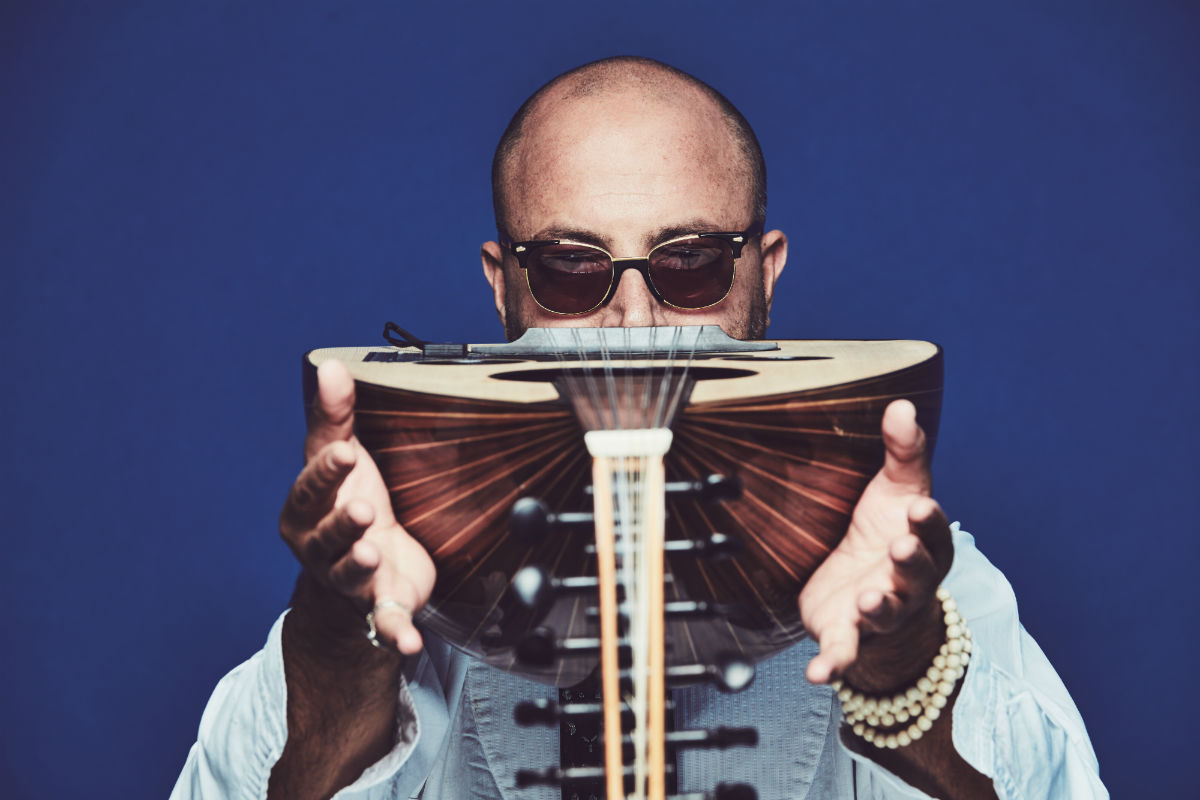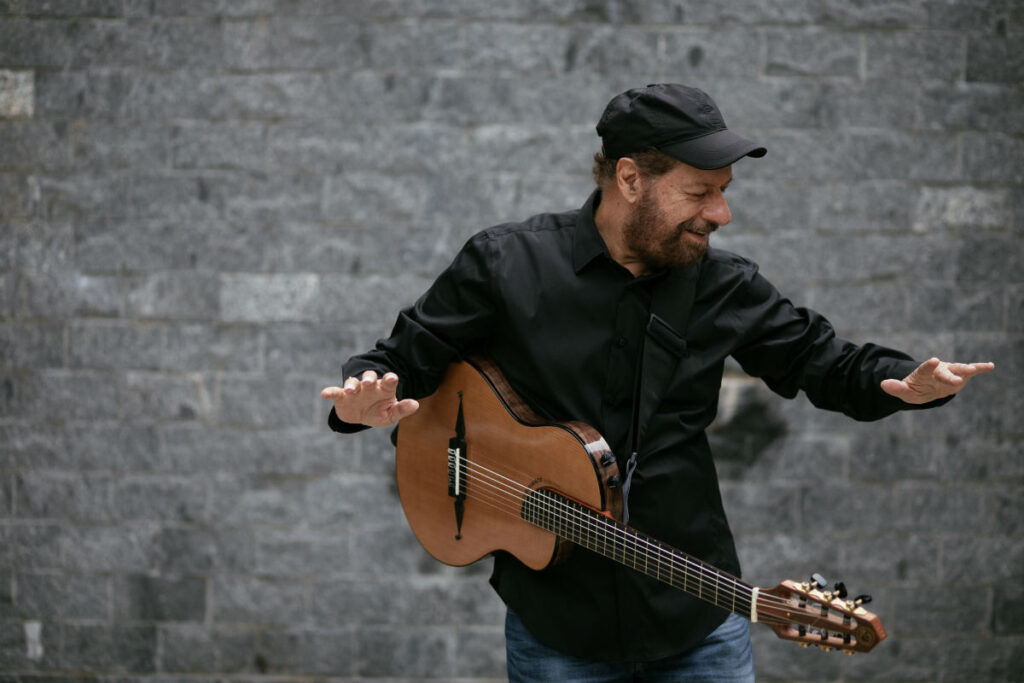The magic of Dhafer Youssef and the Brazilean rhythms of João Bosco mark the start of the final week

- The 27th Festival Internacional Canarias Jazz & Más Heineken reaches the final stage with these two great artists on Tuesday 17 and Wednesday 18
- The concerts will be held at the Leal Theatre (La Laguna), the Tenerife Auditorium and the Pérez Galdós Theatre (Las Palmas de Gran Canaria)
The spirituality associated with the music of Tunisian Dhafer Youssef and the Brazilean rhythms of João Bosco, two of the most sought-after musicians of the genre, marks the beginning of the last week of concerts featured in the 27th edition of the Festival Internacional Canarias Jazz & Más Heineken. Youssef will perform on Tuesday 17 at the Pérez Galdós Theatre and the Tenerife Auditorium on Wednesday 18. While Bosco takes the stage on Tuesday at the Leal Theatre in La Laguna and on Wednesday at the Pérez Galdós Theatre. All concerts commence at 21:00 hours and tickets are at the same price of 25 euros for the four concerts. For Gran Canaria, pre-performance tickets are available on mgticket.com. and the organisation has offered a special price of 40€ for both concerts. In Tenerife, pre-concert tickets for the Leal Theatre are obtainable on entrees.es and for the Auditorium on este enlace. This will be the prelude to the end of the festive events which will relocate venues on Thursday, Friday & Saturday to Puerto de la Cruz (Tenerife) and the public square of Santa Ana (Gran Canaria) (free-entrance concerts).
Youssef comes to this event presenting one of the best albums of the decade, Diwan Of Beauty and Odd, recorded in the prestigious “Sear Sound” studios, featuring some of the best jazz musicians the New York jazz scene had to offer; namely Aaron Parks on piano, Ben Williams on bass, Mark Guiliana on drums and Ambrose Akinmusire on trumpet. Bosco will perform a selection taken from the best of his career in a quartet formation. This will be the first time he has played in the Canaries and it will close a chapter in the history of the festival, who has now managed to programme an artist in its billing that has always been among its preferences.
The spirituality & magic on stage of Dhafer Youssef, musician of extreme contrasts, is very much an icon for many musicians in North Africa, mainly from the Maghreb, and a veritable institution in jazz & World music. Youssef was born in Teboulba (Tunisia), into a modest family with great musical tradition. His grandfather initiated him to ‘quaranic’ recitals and little by little he began discovering the potential of his voice and thus found his vocation. He recalls spending hours singing in the “Hammam” of the local village. The ehoes & sounds that resonated in the walls of this cavern fascinated him, feeding his youthful curiosity. Aspiring to explore new horizons Dhafer left his home town for the capital city.
In Tunis, he joined the Musical Conservatory of Nahj Zarkoun. Dissatisfied with the standard of teaching there, he moved to Austria with the ambition of completing his musical training.The creative exaltation provided by the multiculturism in Vienna and the multiple encounters he made there opened for him a new world of possibilities. After starting his musical studies, he realised that he was not interested in academic training anymore. Seduced by jazz and other musical genres such as Indian music, he particpated in a number of jam sessions and encounters at different bars and clubs, Wolfgang Pusching for example. Finally he met Gerhard Reiter, an Austrian percussionist with whom he formed his first band, Zeryab. In the year 1996, his multiple discoveries and experiences in Vienna brought about the release of his debut album, titled Musafir.
2001 turned out to be a key year in his career with the recording of Electric Sufi with Wolfgang Muthspiel (guitar), Markus Stockhausen (trumpet), Deepak Ram (bansuri), Dieter Ilg (bass), Mino Cinelu (percussion) Rodericke Packe (electronics) and also Will Calhoun (drums) & Doug Wimbish (bass). It was his first experiment with electronic music.
His extraordinary career has covered a number of collaborations: he mixes musical projects & such colloborations, such as a duet with the legendary tabla player Zakir Hussain, with whom he went on a tour of Europe & India, a duet with Dave Holland and the project Digital Africa featuring the virtuoso of kora, Ballake Sissoko. In 2016 he returned to New York, and it was there that the long awaited album of the year was born, titled Diwan Of Beauty and Odd.
Dhafer Youssef. Diwan of Beauty And Odd
Dhafer Youssef: Vocals & Lute
Aaron Parks: Piano
Matt Brewer: Bass
Ferenc Nemeth: Drums

Born in Ponte Nova in 1946, João Bosco cut his musical teeth in a family in which music was as important as eating and sleeping. His mother was an accomplished violinist, his father a singer of samba, his sister a concert pianist, and his brother a composer. While attending Ouro Preto University he became steeped in American jazz (Miles Davis in particular) and the bossa nova sound of João Gilberto and Antonio Carlos Jobim; and it was also at university that he met lyricist Vinicius de Moraes, who contributed with his elegant, poetic lyrics to Bosco’s music. It was not long after that before record companies began offering them their services.
Later in the ’70s, Bosco became musically involved with Aldir Blanc, a psychiatrist who’d decided to give up his practice to become a lyricist. Witty, surreal, at times pretentious, but more often than not extremely clever, Blanc became the perfect foil for Bosco and the two would work together, quite successfully, until the mid-’80s.
Bosco’s career rise coincided roughly with Brazil’s military dictatorship, which lasted from 1964 to 1985 and his work, even the most innocuous love song, was frequently censored. As he noted in an interview in the early ’90s, “anything you composed or sang was censored. And there were no guidelines as to what you could or couldn’t do. Every piece of music I wrote meant spending hours in the censorship bureau, debating with them, sometimes over one word.”
In 1977, Bosco wrote his most personal protest song, O Bebaido e a Equilibrista, which became the theme song of Amnesty International. In spite of his fame in Brazil, Bosco wasn’t known to Americans until he made a guest appearance with jazz guitarist Lee Ritenour in 1988. The spot wasn’t enough to make Bosco an international superstar, but he did begin attracting more attention in the USA. It wasn’t until the early ’90s that Bosco mounted a major tour of that country, but since then he has become increasingly popular internationally, regularly performing at the prestigious Montreux Jazz Festival.
His recordings continued to appear almost yearly, and almost all did well in Brazil. Ai Ai Ai de Mim in 1994 and Dá Licença Meu Senhor in 1996 were both acclaimed globally by critics and attained high ratings on hit charts in Spain and Latin America. In the 21st century, Bosco toured Japan and Europe, as well as Latin America, and Universal Discography began an intense reissue programme of his catalogue titles. His own output during those years, in particular Tristeza de Uma Embolada, Malabaristas Do Sinal Vermelho and Curtição, did well commercially and critically, as did the live Não Vou Pro Céu, Mas Já Não Vivo No Chão.
Bosco concentrated on studio and collaborative work for much of the second decade of the new century. He continued to tour in Brazil, but also played on recordings by daughter Julia, Josee Koning & Nils Landgren. He was one of the outstanding artists who featured in the Moacir Santos tribute concert and its recording Ouro Negro, and contributed to Eliane Elias’ album Dance of Time in 2017. Bosco received a Lifetime Achievement Award from The Latin Recording Academy at the 18th Annual Latin Grammy Awards the same year.
João Bosco
João Bosco: Guitar & vocals
Ricardo Rodrigues: Guitar
João Baptista: Bass
Leonardo de Castro: Drums